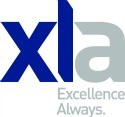
As of late, Unisys has helped multiple government agencies transition to Google Apps for Government. Steve Kousen, Vice President within the Unisys Federal Systems organization, has played a huge role in these projects coming to fruition. He leads the Federal Engineering and End User Services organization and is the portfolio executive of interest for the Secure Cloud Computing initiative, the Google Apps for Government initiative, the Apple Engineering and Deployment initiative, and the Federal Center of Excellence.
Prior to his current role at Unisys, Kousen served as Director of High-Tech and Telecommunications for BearingPoint (KPMG Consulting). He was also previously Chief Technology Leader and Director of Global Systems, Operations, and Architecture for General Electric Medical Systems.
WashingtonExec recently spoke to Kousen about what makes his firm attractive for transitions to Google Apps, how mobility and big data play into the Google Apps cloud based system, benefits to transitioning to Google Apps, and what kind of impact the Cloud First policy has had on the industry.
WashingtonExec: The National Archives, the General Services Administration, the Department of Energy’s Idaho National Laboratory and the National Oceanic and Atmospheric Administration have all transitioned to Google Apps for Government through Unisys. What makes Unisys attractive for this kind of a project?
Steve Kousen: We forged a relationship with Google in 2010 knowing that they were starting to promote their enterprise suite of cloud-based software-as-a-service products to the federal, state & local government agencies. They sought systems integrators and teaming partners to help them do this in a carefully managed and highly coordinated manner. Since Unisys had already implemented several of the largest messaging and collaboration environments in the Government, we were able to easily structure smooth migration paths to enable this to happen. We designed an integration approach which allowed for dual-messaging environments to coexist without disruption to the agencies’ mission, and which also provided adequate time to define critical transition policies, test data migration procedures, and train users on the new product features and functions. Leveraging creative organizational change management techniques, we also have been able to help agency executives communicate their strategic vision for the future and the benefits to be gained from this type of project. We also deploy tactical communications to the agency employees to help them best prepare for and successfully adopt this new technology. We are able to do these transitions quickly and efficiently, with a typical project running between three to six months.
By taking this pivotal step of transitioning to cloud-based collaboration using Google Apps for Government, these innovative agencies have essentially created a new paradigm for accessing their data, anytime, anywhere, and from any device. As a systems integrator, Unisys enables this further by augmenting solution enhancements for secure mobile computing, secure user authentication and single sign-on capability, integrated voice and unified communications, and expanded archiving and records management. We do this for Google as well as solutions from other vendors like Microsoft and Amazon.
WashingtonExec: Can you explain how the “Google Apps for Government” service differs from the “Google Apps for Business”?
Steve Kousen: Google Apps for Government is a special enclave of the Google Apps infrastructure that’s dedicated only to government entities; you have to be a state, local or federal agency to be allowed to be in this particular cloud environment.
WashingtonExec: How does mobility and Big Data play into the Google Apps based cloud system?
Steve Kousen: The new mobility aspect of leveraging Google Apps now allows people to more easily and productively work from home or a hotel or a coffee shop, essentially anywhere there is an Internet connection. Within my own team, we’ve even had some folks collaborating in real time as passengers in cars or trains, using their iPads or smartphones to work on the same documents at the same time that we were working on back in the office. You can literally do it from anywhere, at any time, from any device. This mobility component is very significant and really empowers employees to be more engaged and more collaborative in their job. Leveraging Big Data-type services, Google also provides the virtual, analytical power to get real-time business insights on multi-terabyte datasets in seconds.
WashingtonExec: Besides cutting operational costs, improving system uptime and availability, when transitioning to Google Apps, what can government entities expect when working with Unisys on these kinds of projects?
Steve Kousen: The benefits from Google Apps that you mentioned – operational cost reduction and improved system uptime – are definitely strong components of their offering and value. A critical advantage that government agencies should typically expect when working with Unisys and these types of projects would be the ability to bring deep technical expertise and systems integration experience to further augment functionality and minimize the risk of project failure. For example, to meet specially mandated Federal requirements for records management, Unisys researched, engineered, and successfully delivered a separate, but fully integrated cloud-based records management system to the National Archives and Records Administration. As with all projects which touch every employee in an agency, the advantage of leveraging an experienced Government SI helps to ensure that the typical project roadblocks are overcome smoothly and successfully.
WashingtonExec: Is Unisys currently planning on any future contracts for more transitions to Google Apps? Do you expect more government agencies to follow?
Steve Kousen: Definitely. We are seeing an upsurge in the market for cloud-based technologies. These examples that we talked about show that it’s possible to document real savings. An example is the GSA, one of the first to go agency-wide to the cloud. They have gone on record to say that they expect to save 50 percent of their operating costs every year and plan on targeting a little over $15 million in cost savings in five years. The economic benefit of cloud computing and Google Apps for Government is getting publicized and proven, and interest is increasing significantly.
WashingtonExec: Do you think the Cloud First policy has made an impact on industry and what kind of impact have you seen? Do you think it will be a long time before we reach those original goals?
Steve Kousen: I think the Federal CIO made a tremendous impact by publishing his initial 25-Point Plan and spearheading the Cloud First policy. I quite frankly feel that it really enabled the Federal government to take a leadership role in the cloud computing market space. That said, for sure there is much more to do. We’ve seen a wave of these early adopters join that Cloud First policy, but there is much more that can be done and we are trying to help promote that.
WashingtonExec: How do you think the development of “hybrid apps,” where users can create their own applications, will impact the mobile market?
Steve Kousen: I think the advantages of “hybrid apps” over native app development will significantly drive the mobile market in a very positive way. Greater financial savings, with easier cross-platform distribution capabilities, and with a growing base of qualified web developers, are combining to enable HTML5 hybrid apps to quickly become the premier game changer in mobile computing in the very near future.
WashingtonExec: Do you have a particular book that has impacted your career or a book that you would recommend to those wanting to success in this industry?
Steve Kousen: I do like Jack Welch’s book, Winning, about leadership, business and his philosophy on successful management. Of course being an ex-GE person, I was able to experience first-hand the drive and competitive passion that he brought to the company which made it into what it is today. I recommend it as a definite read for all business leaders.


